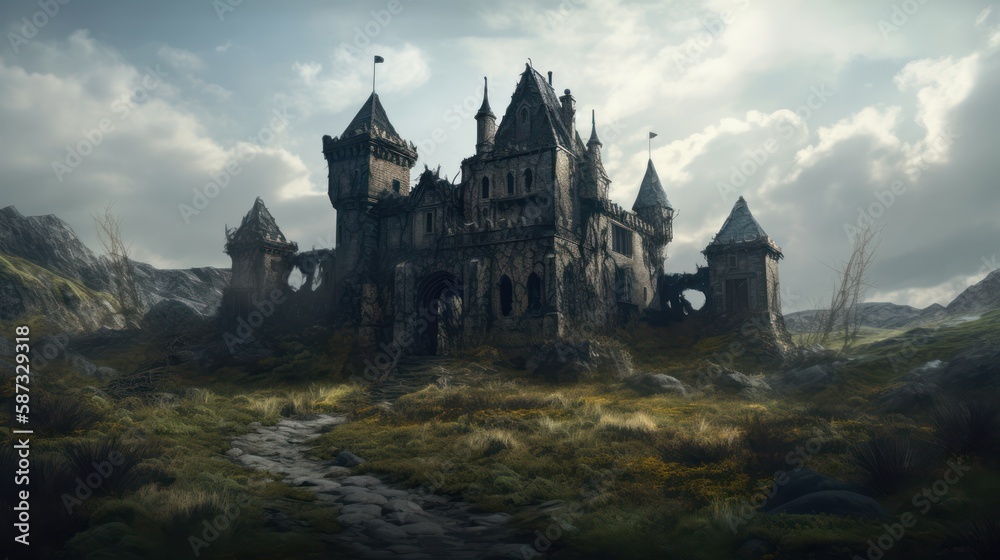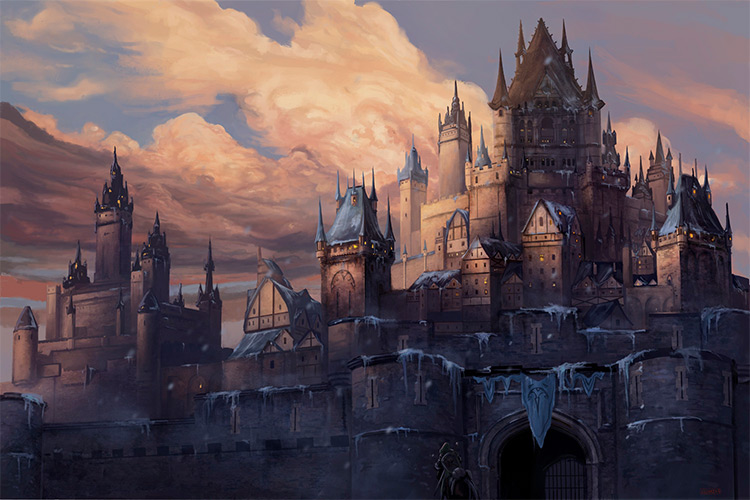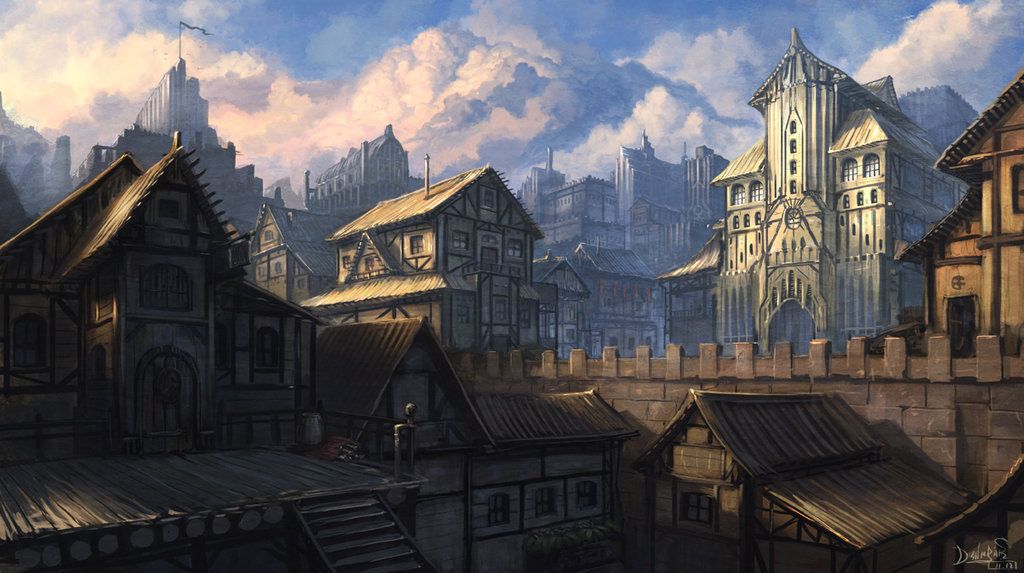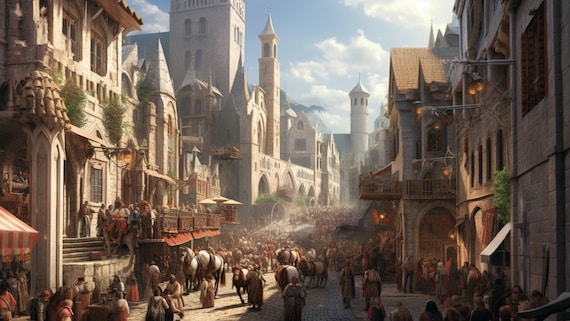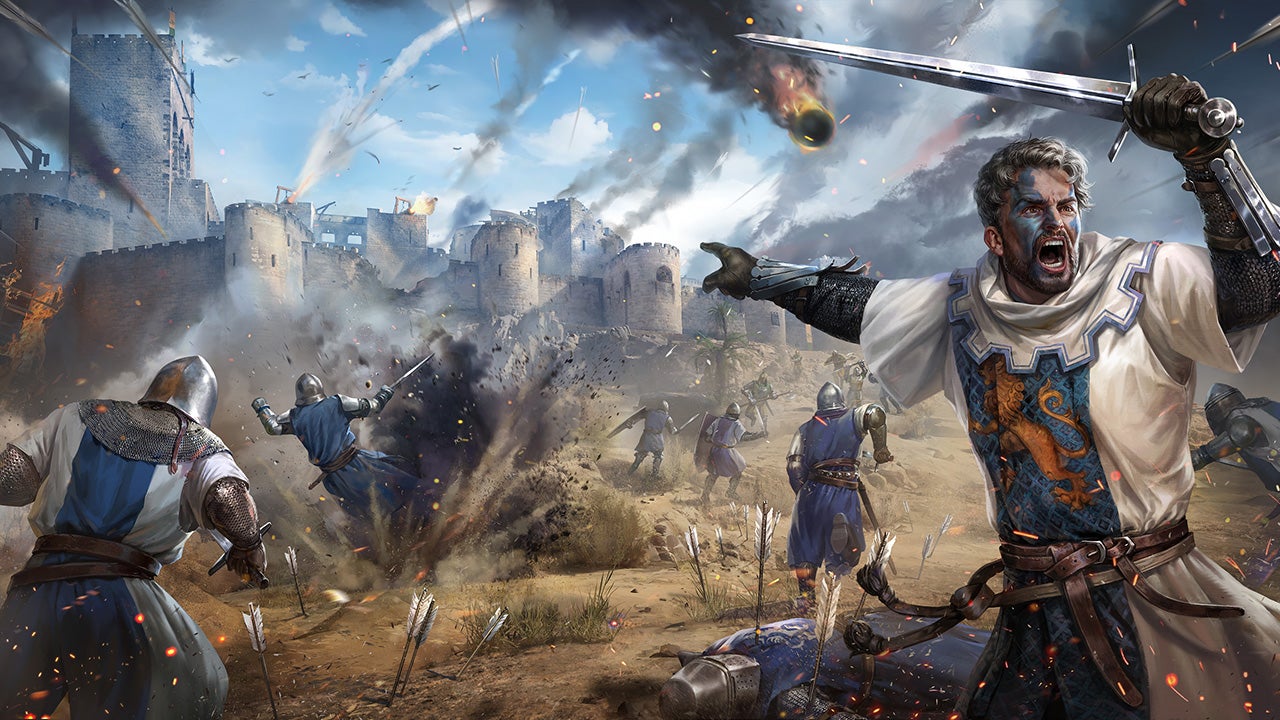Gothic Frank
History
To delve into the history of the Gothic Frank, we must first understand the Goths. Descendants of the ancient Nædran who settled and branched out in the early second age, they have grown to become the largest culture in the world. When the Nædran divided, they evolved into two distinct groups: the Goths, who inhabited the vast Gothic continent, and the Gols, who settled on a separate landmass, the Gol continent far south. The Goths developed their own unique language and the first form of writing, which served as a unifying thread across their expansive territory. Despite the immense geographical spread of their culture, spanning countless regions across the Gothic continent, the core tenets of Gothic society remained remarkably consistent. This cultural cohesion, combined with their vast numbers, solidified the Goths as a dominant and influential civilization, shaping the world around them with their enduring traditions and values.
The Gothics held an unwavering trust in authority, a trust rooted in the benevolent reign of their Eternal Queen, whose wisdom and fairness have guided their society for generations. This deep-seated faith in leadership extends to their belief that certain individuals may be chosen by fate or merit, much like the Eternal Queen has historically chosen the kings to rule for an age. Alongside their reverence for authority, the Gothic Franks possess a strong appreciation for hard physical work such as architectural prowess and agriculture, constructing grand and intricate structures that reflect their cultural pride and feeding through sweat and blood. One such prowess in Valklora would be King's reach. An immense Bridge reaching for several leagues into the Ocean. It was built towards the end of the second age, and is told led to the discovery of the Eternal Queen. It took a thousand years to build and several generations of kings with the same prophetic dream. Legend says it is the very reason for the Gothic interrest in Valklora, land previously thought barbaric and futil, led by Wealch descendants. This passion for their own achievements is balanced by a profound respect and curiosity for the histories and traditions of other cultures, acknowledging the importance of preserving and honoring the diverse legacies that coexist within their expansive realm.
The Gothic Frank culture emerged at the dawn of the Third Age, when the Gothic Empire expanded its reach to the peninsula of Valklora more formally. The Franks and the Goths, sharing several similarities in their values and principles, quickly found common ground and formed a strong bond. Rather than one culture assimilating the other, the Franks and Goths gradually merged their traditions, creating a new variant of their shared heritage, deeply rooted in the histories of both peoples. This blending of cultures led to the rise of the Gothic Frank, a unique and unified society that flourished across the continent. The cultures branched into the traditional knowledge keeper, typically north, known as Valk Frank and those more influenced by the Gothic, typically south, the Gothic Frank. However, after the devastation of the Scourge at the end of the age, only the Gothic Frank remained, embodying the dying legacy of the once-great Gothic civilization and carrying forward its traditions and values into the future.
After the great scourge ravaged the lands on the continent, forcing all to unite under the leadership of the last Arthur, it was the Franks who endured the greatest suffering. The relentless onslaught left their communities shattered and their people in disarray. When the scourge finally subsided, no one was fit to assume the mantle of leadership, and the once-strong political unity of the Franks dissolved into fragments. In this vacuum of power, the Church of the Mediaries emerged as a beacon of hope and cohesion. Preaching a message of renewal and solidarity, the church fostered a new movement aimed at rekindling the spirit of unity among the Franks. This movement, embracing the new name of the Elysians, sought to transcend old divisions and rebuild their society on the foundations of their shared heritage and collective resilience. Under this banner, the Elysians aspired to restore their former glory, guided by the principles of faith, cooperation, and a renewed sense of purpose.
Traits & Personnality
The Franks are a distinctive people, originally characterized by their striking black hair and vivid green eyes. As they mingled with other cultures over the centuries, a diverse range of appearances emerged among them. Some Franks now have brown eyes and brown hair, with occasional variations of dirty blonde and even gray hair, though the latter remains quite rare. This blending of physical traits reflects their inclusive and adaptive nature.
Personality-wise, Franks are known for their resilience and communal spirit, valuing knowledge sharing and a strong sense of duty. They are hardworking, often bound by a deep connection to their agricultural roots, yet open to innovation and new ideas brought by different cultures. The Franks are a people deeply committed to honesty, with a cultural value system that fosters a close relationship with the truth. Their strong sense of communion and unity is a defining trait, leading them to uphold the law rigorously and regard outlaws with little respect, regardless of their origins. This commitment to order and justice strengthens their societal bonds and ensures a harmonious community. Additionally, the Franks are known for their integrity, respect, and thoughtfulness. For the Gothic Frank, it is even more true for physical hard work and honor.
Realms & Nobility
The realms of Frankia is structured with a well-defined hierarchy of nobility and governance. First, highborn individuals who govern cities are known as lords and ladies, while those governing villages are lanlords and landladies. Rulers, are usualy called kings and queens when they rule one realm and emperor when they do have subjugated kings of their own. Secondly, knights, aristocrates and measters are concidered the middleborn. The Knights, who play a crucial role in the defense of the realm, are anointed by noble houses and pledge their allegiance first to the anointing house and then to the realm. Knight orders legitimised by the realm, highly esteemed in the regions under Frankish rule, are also considered regarded as knigthed by law but may only pledge to the realm. Aristocrats, forming a significant portion of the royal courts, are instrumental in advising the rulers, providing funding, and occasionally rising to nobility when their contributions are deemed particularly valuable. This intricate network of lords, knights, and aristocrats ensures a balanced and robust governance that upholds the culture's ideals and stability.
Both lowborn individuals and aristocrats required to obey their liege lords. In times of war, pleebes may be called uppon to serve as levy, and those refusing may be lose their freedom and become slaves. Although slavery is permitted, slaves are not considered property; they are recognized as people with inherent dignity. This nuanced approach to slavery reflects the Frankish belief in the intrinsic worth of every individual. Furthermore, the mistreatment of lowborn individuals is a grave offense, punishable by death, regardless of the perpetrator's social rank. This strict enforcement ensures that even highborn individuals are held accountable for their actions, maintaining justice and protecting the welfare of all members of society. Often were rulers deposed, deemed too tyranical.
Traditions
The traditions of the Frank culture are deeply intertwined with the rhythms of the agricultural lifestyle, often revolving around food feasts and the celebration of fancied recipes. Central to their customs is the annual "Gathering of Abundance," where the entire community, regardless of rank or status, comes together to partake in the final harvest. During the festival, tables are laden with the season's bounty, and the air is filled with the aroma of freshly prepared dishes, fruits of their collective labor. Through these joyous feasts, the Franks honor their heritage, reinforce communal bonds, and celebrate the abundance that their unity and hard work have brought forth.
Food is not the only thing the Franks revere; they place immense importance on preserving the memory of their great figures. Among these, the last Arthur holds a special place in their hearts, remembered not only as a legendary leader but also as a symbol of their enduring spirit. The day of his coronation is celebrated with grand festivities, where noblemen gathers and drink, dance and wed. It is common to witness houses declare their alliances with mariage during This celebration. The day known as "Arthur's Ascendancy," embodies the belief that the Franks are destined for greatness, a people united by their history and driven by a shared vision of excellence. It is a time when the community comes together to look forward to a future filled with promise.
Typically, Franks live in Tudor-style houses, characterized by their timber frames and distinctive, half-timbered facades. These reflects the need for durable houses efficient in both winter and summer. The cities themselves are fortified with walls of meticulously quarried stone, each piece placed with precision to ensure both strength and aesthetic appeal. Towers recognizable by their pointy slated roofings. Within these walled cities, there are intendant houses where commoners and adventurers alike can find suitable work, contributing to the community's prosperity and social cohesion. The castles, often designed to resemble grand manor fortresses, serve as both defensive structures and symbols of noble power and elegance, blending functionality with the Frankish penchant for refined living.
Learned
- Rider (+1 ability, +2 tame, start with a Ridable companion, Ride any tamed beast)
- Militia duty (+1 sharp, +2 vigilante, +1 ability)
- Farmer knowledge (Food last longer when you give it care and animals can eat half without consequences)
- Knight's resolve (+4 honor. Honor can be added to persuasion and resilience. If honor is negative, it can be added to intimidation)
Inate
- Diplomat (+3 negotiation, Advantage on minds checks related to deals. More easily understand the needs to facilitate compromises)
- Witch resilient (+5 initiative when fighting spell casters, advantage on resistance to any none-physical magic types)
- Healthy body (+1 body, eating well while resting doubles the health recovered)
- Valiant worker (+1 endurance, Long distance and not resting cause less exhaustion)
